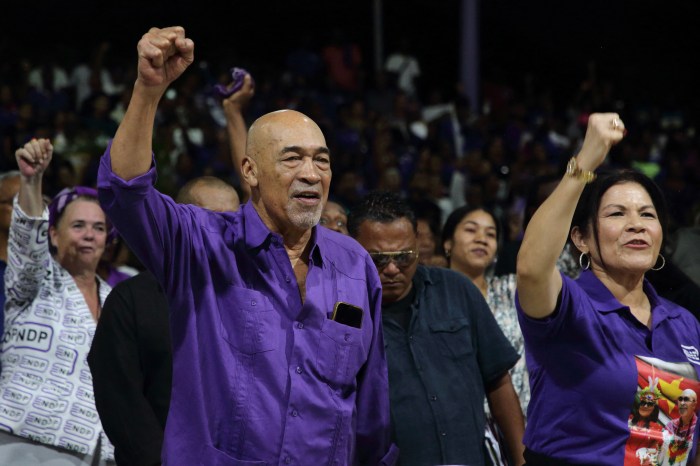Freedom of movement for CARICOM citizens within the 15-country grouping does not mean that police in a jurisdiction cannot detain any such Caribbean person while law officers are legitimately investigating an issue.
This became clear Monday when the Caribbean Court of Justice shot down a Grenadian family’s application to pursue a claim that Barbados police violated their right to freedom of movement and to depart the island unhindered.
The mother, father and two adult daughters contended that the violation occurred when police arrested and detained them for 6 ½ hours in October 2016 and eventually released with no charged laid against them.
The Grenadian family, the Gilberts who were on a one-day visit, had contended that while shopping some members of the group were accused of stealing a cellular phone, and they were all subsequently detained at a police station, poorly treated, while one of them was made to endure a humiliating body check.
In its ruling today, the CCJ however pointed out, “the applicants were taken into police custody for the purpose of police investigations and … freedom of movement did not immunize CARICOM nationals from the operation of law enforcement agencies in the receiving state.”
In an explanation of its ruling the CCJ stated, “the applicants would have had to set up an arguable case of discrimination based on nationality only, prohibited by Article 7 of the Revised Treaty [of Chaguaramas], in order to be granted special leave to bring their claim against Barbados. This, they failed to do. The application was therefore dismissed.”
Freedom of movement of CARICOM citizens under the Treaty entitles nationals entry and an automatic six-month stay in any territory with the option of extending that time. This is unless they have a criminal record or possess no proof of an ability to financially sustain themselves during the stay.
That same CCJ made clear these enforceable conditions in 2013 when it ruled that Barbados immigration officers had violated the rights of Jamaican Shanique Myrie in 2011 by subjecting her to a cavity search, locking her up, then deporting the CARICOM visitor contrary to Treaty rules.
Barbados was also ordered to pay the Jamaican woman $38, 620 plus legal costs.
When, in 2017, the Gilberts indicated a planned lawsuit against the Royal Barbados Policy Force, Grenada Prime Minister, Keith Mitchell reportedly said that he was prepared to give Barbados the benefit of the doubt, at least until the matter could be fully investigated.
“It seems to me that there might have been an over-reaction from a report, and if what I saw is true, the [Barbadian] police may have to examine their approach in a matter of this nature because, as it turns out, there may not be any basis for it from all reports I have heard,” he added.
The Gilbert daughters, Tamika, 28, and Lynnel, 31, needed to visit Barbados for a United States visa interview with officials at the US Embassy, which is stationed in that island and covers the entire Eastern Caribbean. They were joined by father, Royston, a pastor, and mother, Glennor, for family time with a Barbadian aunt and cousin.
But their business trip and vacation turned into a nightmare on Oct. 11, when while shopping a store operator accused the daughters of stealing a cellular phone.
Tamika said that though she volunteered to have her bag checked and it revealed nothing stolen, police were called in.
The family said that many officers responded to the call, and following a shouting match among them, the store operator and police, the sisters, along with the cousin were carted off to the police station.
Tamika said that after being taken to the station’s lavatory for what she believed would have been a pat down search, another and much more embarrassing stage of the ordeal began.
“I went to the bathroom and she [female police officer] is at the stall with her back to the door and she said, ‘take your hair down’ cause my hair is in braids and it was in a bun. Then she says, ‘take off all your clothes stoop and cough’… She wasn’t even satisfied with how low I stooped.”
It is also alleged that when Lynnel requested to use the toilet, she was forced to do so with the door open and in full view of an officer.
Barbados Police found nothing in their search and the family returned to Grenada.























